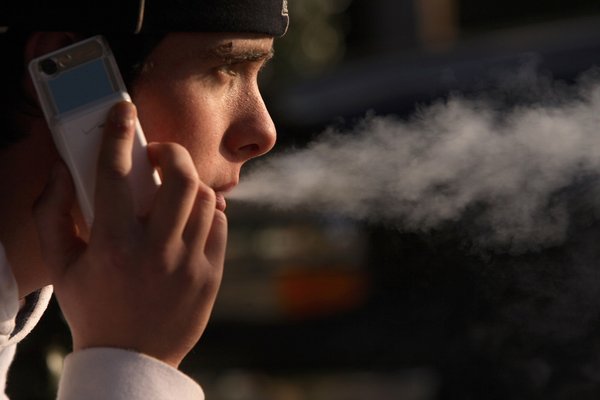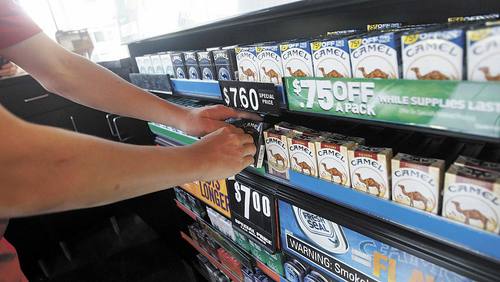Smokers bypass new tax increase by rolling own cigarettes
Article by: PAUL LEVY , Star Tribune
Minnesota smokers have found a way to beat the state’s new cigarette tax. They’re rolling their own.
Tobacco sales have slumped since the nation’s sixth-highest cigarette tax raised the price of a pack of cigarettes in Minnesota by $1.60 in July. But Twin Cities tobacco-shop owners say many customers are buying tobacco by the pouch — purchasing enough to roll at least two cartons’ worth of cigarettes for a fraction of the price.
The pouch tobacco is intended for cigarette rolling but is taxed differently because its wider cut classifies it as pipe tobacco, said Rich Lewis, owner of Lewis Pipe and Tobacco in downtown Minneapolis. A 1-pound pouch of rolling tobacco costs $23. Two cartons of cigarettes (20 packs) cost nearly $160, with the state excise tax now at $2.83 per pack.
“Most of my people are switching to roll your own,” said Yamen Haidari, general manager of Discount Tobacco in Fridley. “People tell me they’re getting two-and-a-half cartons’ worth of cigarettes for a little more than $20.”
A customer at the Tobacco Town shop in Anoka said she usually buys cigarettes by the carton. This week, she bought a pound of loose tobacco and two packs of cigarettes.
At Infinity Smokes in downtown Minneapolis, owner Tariq Hamouda said that he has seen an increase in loose tobacco sales and that “in neighborhoods and in the suburbs, they’re selling a lot more tobacco by the pound since the price of a pack went up to $8.”
The opening stems from a 2009 federal tax increase on cigarettes and cigarette tobacco that did not apply to pipe tobacco. “Any type of loose-leaf tobacco that was considered for cigarettes was relabeled as pipe tobacco, because it would not be covered under the federal increase,” said Mike Sheldon, a spokesman for Clearway Minnesota, an independent nonprofit that attempts to reduce tobacco use and secondhand smoke through research and collaboration. “There are taxes on other tobacco products, besides cigarettes, but they’re different.”
In Minnesota, the tax on loose tobacco is substantial — 95 percent of the wholesale price — but that still is generally less expensive than traditional cigarettes.
The Minnesota Department of Revenue has yet to determine whether the new taxes have sparked an increase in loose-tobacco sales, said department spokesman Ryan Brown. But Gary Foss, a clerk at Tobacco Outlet Depot in Minneapolis, says there’s no question. “We’re selling more pouches and e-cigarettes. It’s gotten very competitive.”
Tobacco sales, in general, were down last month in Minnesota. Lewis says his sales fell 75 percent when the tax initially took effect. Sales have rallied since, but not to the point they were before the tax increase, Lewis and other local store owners said.
It is too soon to say what the ultimate effect of the new cigarette tax will be on smoking in Minnesota, according to the Minnesota Management and Budget Department, which monitors the taxes collected on tobacco.
Dips in cigarette-related revenue are expected the first few months after a tax, said department spokesman John Pollard. August tobacco tax revenue was lower than expected, Pollard said.
Health-related, or perhaps cost-related, concerns over tobacco seemed to grow as sales dropped. The number of calls to Clearway Minnesota’s quit line increased 256 percent in the first week of July (compared to the same week in 2012). Online inquiries into quitting jumped 289 percent that week, Sheldon said.
There is also concern over the growing popularity of e-cigarettes. A recent survey showed one in five young people have used e-cigarettes the past 30 days, Sheldon said.
Some smokers are getting cigarettes out of state. Lewis says a customer in his 70s told him his sister ships him cartons of cigarettes from Missouri, where the excise tax is only 17 cents per pack, compared to Minnesota’s $2.83.
The only states with higher cigarette excise taxes than Minnesota are New York (the nation’s highest, at $4.35), Massachusetts, Rhode Island, Connecticut and Hawaii. Washington, D.C., has an excise tax of $2.86 per pack. In New York City, which has additional cigarette taxes, a pack of Marlboro Red cigarettes costs $14.50.
States surrounding Minnesota all have lower cigarette excise taxes, but Twin Cities smokers are not likely to flock to Wisconsin, where the cost is just 31 cents less per pack.
The most dramatic difference is in North Dakota, where the excise tax per pack is only 44 cents, or $2.39 less than in Minnesota.
“Why would anyone ever buy cigarettes in Moorhead?” Lewis asked.
http://www.startribune.com/politics/statelocal/223778101.html?page=1&c=y



